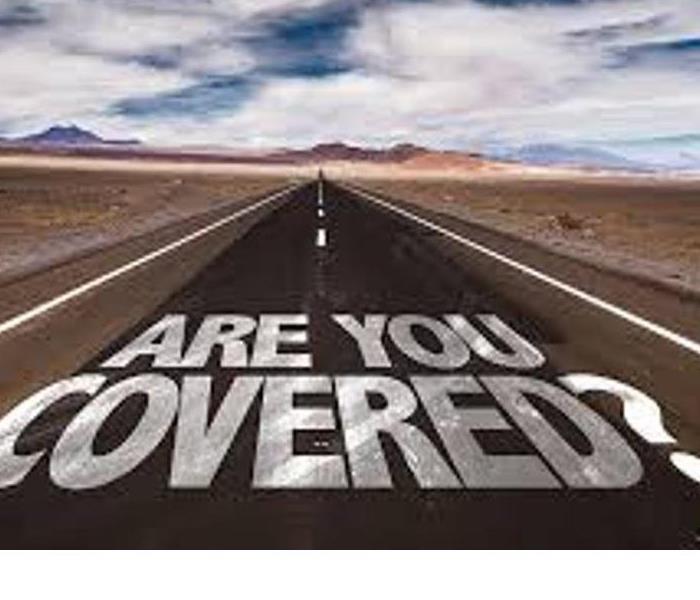6 Types of Insurance Every Small Business Needs
9/29/2021 (Permalink)
 Coverage you need as a small business owner to protect yourself, your business, your employees, and your customers.
Coverage you need as a small business owner to protect yourself, your business, your employees, and your customers.
Running a small business can be overwhelming — in the midst of wearing so many hats, things like finding the right business insurance coverage can sometimes be pushed aside. But it’s important to remember that without the necessary coverage, everything you’ve worked for can be lost in the blink of the eye, with one large claim you can’t recover from.
From customer slips and falls to your employee’s laptops to dropping a hammer while working on a house, there are so many things that business insurance protects you from. We’ve made it easy and quick for you by laying out the 6 types of coverage you need as a small business owner to protect yourself, your business, your employees, and your customers.
1. Property Insurance
Commercial Property Insurance is imperative to your small business, whether you own the building where your business is located or not. Here are the two basic parts: 1) If you own the building, you will have to insure the property to its replacement cost; 2) Whether you own the property or not, you will need to insure everything inside the property, which is also known as “Business Personal Property Insurance.” This insurance will ensure coverage of everything inside your office, from computers to phones to conference tables — even your desk!
Theft, vandalism, fire, malicious mischief and wind damage are other perils covered by property insurance. Property insurance is included in standard “BOPs” or Business Owner Policies.
2. General Liability Insurance
General Liability Insurance provides protection if you, your employees, your product, or your services are considered negligent and cause bodily injury or property damage. It protects your business against claims that occur while customers are on your premises. Say you own a restaurant — General Liability Insurance covers you if a customer were to trip and sprain their ankle in your restaurant. It also includes products coverage in case a patron gets food poisoning from your product.
If you are a contractor working on a home remodel and a neighbor walks by and trips over an extension cord you’ve accidentally left exposed on the sidewalk; General Liability Insurance covers “Bodily Injury to Others,” in this case, due to negligence. Say the contractor accidentally drops their hammer on a neighbor’s car — GLI also covers this “Property Damage to Others.”
3. Loss of Business Income Insurance
Loss of Business Income Insurance will cover your net profit, or the “Actual Loss Sustained” if you go out of business for a period of time. For example, if your business runs from a brick and mortar location and a fire puts you out of commission for three months, this policy will cover your net profit you would have made in those three months. It will give you the peace of mind necessary to make changes in order to recover!
4. Workers’ Compensation Insurance
Workers’ Compensation insurance provides wage replacement and medical benefits to employees injured in the course of employment. Did you know it also relinquishes the employee's right to sue his or her employer for the tort of negligence? By accepting workers’ compensation benefits, the employee gives up this right.
Small business employers can help control Workers’ Compensation costs by instituting a formal safety plan aimed at preventing claims from occurring and minimizing the loss when they do. Having a safety manual in place and giving proper workplace safety instructions to all of your employees is critical to keeping them safe and your costs down!
5. Cyber Liability Insurance
A data breach to your small business can be crippling. If your business stores private information about employees or clients, it is your responsibility to protect that information. Moreover, if a data breach occurs, you are obligated to notify all of your employees and customers, which can be an overwhelming and expensive task. Cyber liability insurance will cover the expenses incurred in doing so.
You should also know if the limits provided in your current Business Owner Policy are adequate in the event of a data breach loss. The average annual cost of cyber attacks to small and medium-sized businesses was nearly $200,000 in 2010. Business owners may not realize that cyber liability coverage included in Business Owner Policies will generally only provide lower limits. This means it’s important to talk to your insurance agent about a more robust, stand-alone cyber insurance policy for your business. In addition, it is important to know if your Umbrella Liability policy will provide coverage over and above the Cyber Liability limit.
6. Umbrella Policy
An Umbrella Policy extends the coverage of all of your policies — think of it as an actual umbrella protecting you from the rain. An umbrella policy will provide additional liability limits over and above those provided by your other policies in the event of a larger claim. For example, if your General Liability or Commercial Auto Insurance has a limit of $1 million, and you have a claim or lawsuit against you for $1.5 million, the umbrella policy will cover the extra $500,000. You don’t want to find yourself in a situation where your General Liability Insurance isn’t enough coverage and you’re paying hundreds of thousands of dollars to make up for that mistake.
Small business insurance is equally important and complex. You worked hard to create your business. Don’t lose it by having inadequate insurance coverage!





 24/7 Emergency Service
24/7 Emergency Service